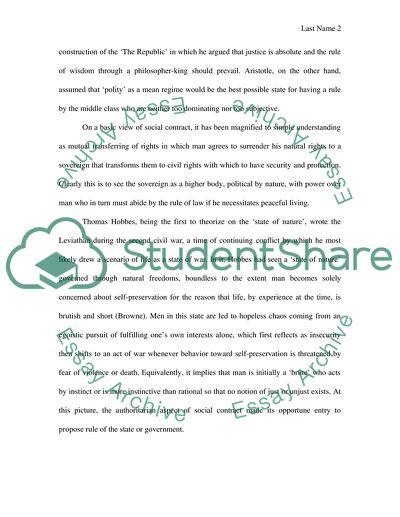Cite this document
(The Social Contract Term Paper Example | Topics and Well Written Essays - 1750 words, n.d.)
The Social Contract Term Paper Example | Topics and Well Written Essays - 1750 words. Retrieved from https://studentshare.org/social-science/1737561-the-social-contract
The Social Contract Term Paper Example | Topics and Well Written Essays - 1750 words. Retrieved from https://studentshare.org/social-science/1737561-the-social-contract
(The Social Contract Term Paper Example | Topics and Well Written Essays - 1750 Words)
The Social Contract Term Paper Example | Topics and Well Written Essays - 1750 Words. https://studentshare.org/social-science/1737561-the-social-contract.
The Social Contract Term Paper Example | Topics and Well Written Essays - 1750 Words. https://studentshare.org/social-science/1737561-the-social-contract.
“The Social Contract Term Paper Example | Topics and Well Written Essays - 1750 Words”, n.d. https://studentshare.org/social-science/1737561-the-social-contract.


